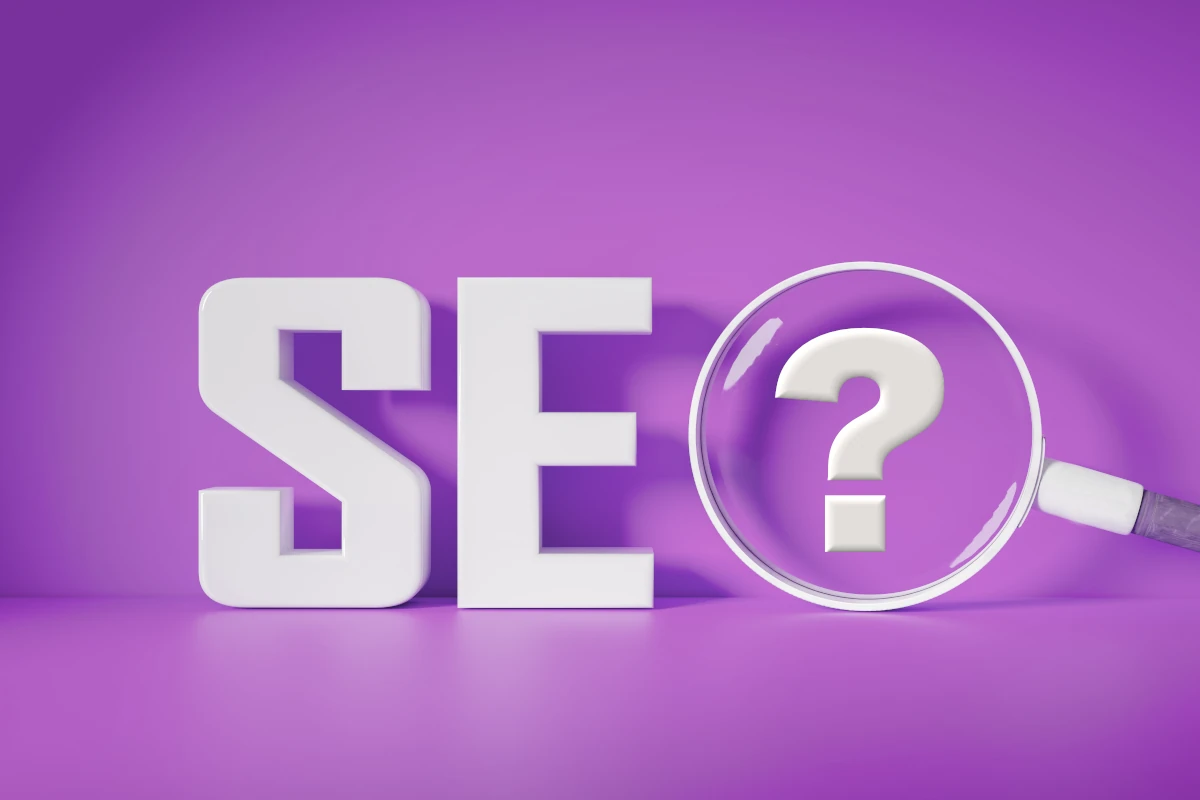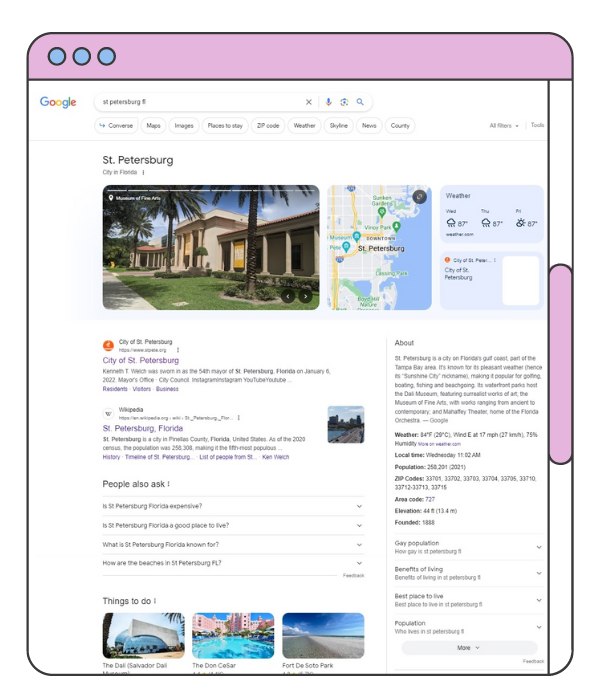
What is Ranking & a SERP in SEO?
The SERP is an important indicator of how well your pages are doing in terms of search engine optimization. To measure this, algorithms use sophisticated AI and machine learning techniques to assign a ranking to each page. How though? Find out below.
What is a SERP in SEO?
Search engine results page explained.
Curious about SERPs? You’ve probably used them countless times! Every time you search online, the results page you see is a SERP (Search Engine Results Page). So, chances are you’re a SERP pro without even realizing it. Let’s delve deeper into what makes them tick!
A SERP is the page that populates after inputting a search query on a search engine such as Google or Bing. These pages generally contain organic results, sponsored advertisements (PPC ads), featured snippets, knowledge graphs, images and video clips.
All SERPs are slightly different from each other. However, Google is the most widely used search engine with over 80% of the market share, so we will focus on its guidelines and features.

What are the features of a SERP?
SERPs, or the only billboard you need, have come a long way since the early days of the web. Not only can users find standard search results that provide the website name and related data, but also images, shopping recommendations, Tweets, and information cards. Generally speaking, these elements fall into one of the following categories:
- Paid results: Results that are bought by bidding on keywords. Labeled as ‘Sponsored’, they usually populate at the top and throughout the SERP (e.g., PPC or Google Shopping).
- Universal results: These appear in addition to organic results (e.g., image results, new results, featured snippets).
- Knowledge graph features: Data which appears as panels or boxes and generally on the right-hand side (e.g., weather, Celebrity Knowledge Panel, movie/film information)
- Rich snippets: These add a visual layer to an existing result (e.g. ratings, reviews, FAQ list)
What is Ranking in SEO?
Competing for the top spot.
Search ranking refers to the position a website or webpage holds on a specific search engine results page.
Achieving higher positions on the SERP is one of the primary goals of SEO. The reason for this is that it typically yields more organic website traffic, AKA more visitors at higher quality.
Reaching the “golden ring,” as our agency calls it (previously the top 3 search results), used to be the ultimate goal for search engine optimization. However, with Google’s evolving algorithms, including personalized results, generative AI, and continuous scrolling, ranking consistently high overall is now the key strategy.
Getting found quickly online is crucial! Today’s searchers crave instant answers, and scrolling endlessly isn’t on their agenda. The higher you rank in search results, the more likely users are to discover your website. So, how do you climb the search engine ladder? Let’s dive into the strategies that can boost your ranking!

The Ranking Algorithm
Google’s results automatically generated.
Google SEO rankings are all about the search engine’s algorithms. These algorithms are intricate and involve a series of internal processes that Google employs in order to rank webpages.
There are over 200 factors that influence search engine rankings, some which have been confirmed and others are still unknown. Don’t worry, we’ll get to those.
First, be sure to brush up on the topic of search engine optimization and how it works:
Confirmed Ranking Factors
Some we know, some we don’t, and others we can only speculate on. It is no secret that Google places great importance on certain aspects of SEO. Below are a few that have been formally acknowledged:
CORE WEB VITALS
E-E-A-T
SPAM POLICIES (─)
HTTPS
BACKLINKS
DOMAIN AUTHORITY
WEBSITE STRUCTURE
CONTENT RELEVANCE
CONTENT QUALITY
PHYSICAL PROXIMITY
ON-PAGE UI/UX
KEYWORDS
PAGE SPEED
MOBILE-FRIENDLINESS
How Google Answers Search Queries
Google is the bridge between vast amounts of online information and searchers looking for answers. To find the most relevant information, and quickly, Google has designed their ranking systems to more easily sift through billions of webpages and other content within their Search index. It uses 5 main factors when determining which information to show to users:
- Meaning of the query: advanced language models decipher user intent based on the wording used.
- Relevance of content: use of keywords and other means to determine if content (e.g. text, media) on the page is actually relevant.
- Quality of content: Looks at experience, expertise, authoritativeness, and trustworthiness and evidence to back it up (e.g. links).
- Usability of webpages: Will take into consideration page experience aspects to put best journey in front of users.
- Context and settings: Looks at location, past Search history, and Search settings to personalize content if possible.

Rank on the SERP
Grab a top spot & outshine the competition.
Organic search engine rankings cannot be bought, but they can be improved. This is the entire basis of SEO! By optimizing your pages, it increases the likelihood of higher rankings in organic results.
To improve your rankings, you’ll need a solid understanding of SEO as a whole. Keep asking questions, keep reading, and keep increasing your knowledge base. If you don’t want to put time into that, we get it. Cyberlicious® can take care of it for you. So, are you ready?
Need more SEO insights?
Explore our FAQ like a delightful dessert buffet. Click a question for a single bite or savor the entire knowledge base!
▼ Beginner SEO FAQ
How to Learn SEO
What is an SEO Campaign Strategy?
How to Identify Keywords for SEO
What is SEO Copy & How to Write SEO Content?
What is an SEO Title?
What is Meta Tag in SEO?
Why is Having Duplicate Content an Issue for SEO?
What Is On-Page & Off-Page SEO?
Why are Internal Links Important for SEO?
What are Backlinks & Link Building in SEO?
